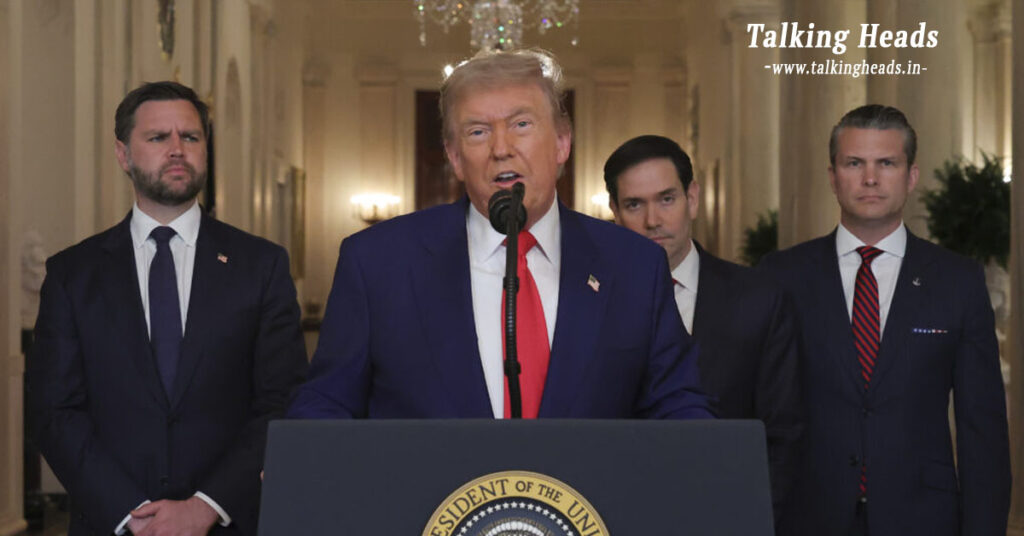Pakistan’s Asim Munir Sparks Global Outrage with U.S. Speech Threatening Nuclear Attack on India
Table of Contents
In a controversial and unprecedented move, Pakistan’s Army Chief General Asim Munir has openly threatened India with a nuclear strike — not from Islamabad or a military outpost near the border, but from the United States. Speaking at a private event in America, Munir warned that if India proceeds with building a dam on the Indus River, Pakistan would destroy it with “10 missiles” and, if necessary, “drag half the world down” in the event of an all-out conflict.
This marks the first time a serving Pakistani military leader has issued a direct nuclear threat to a third country while on American soil, raising serious geopolitical and legal questions.
Munir’s Provocative Remarks in the U.S.
General Munir was in the United States on his second visit since “Operation Sindoor,” attending the retirement ceremony of U.S. Central Command (CENTCOM) chief General Michael Kurilla. On August 10, at a private dinner hosted by Pakistani-American businessman Adnan Asad, Munir delivered his most aggressive India-related statements yet.

According to attendees, Munir declared:
- On the Indus River dispute: “If India builds a dam on the Indus, we will destroy it with ten missiles. The Indus is not India’s private property. We have no shortage of missiles — Alhamdulillah.”
- On nuclear escalation: “Suspending the Indus Waters Treaty could starve 250 million people. We are a nuclear-armed nation. If we are going down, we will take half the world with us.”
- On military comparison: “India is like a Ferrari on the highway, but we are a gravel-filled dump truck. If the truck hits the Ferrari, who suffers more damage?”
- On Kashmir: Quoting Pakistan’s founder Muhammad Ali Jinnah, Munir said, “Kashmir is Pakistan’s jugular vein. It is not India’s internal matter but an unresolved international issue on the UN agenda.”
- On Mukesh Ambani: Munir referred to a past tweet containing verses from Surah Fil alongside the Indian billionaire’s image, hinting at targeting “India’s most precious resources from the east before moving west.”
Why Threats from U.S. Soil Are a Diplomatic Earthquake
Foreign policy experts call Munir’s remarks a “turning point” in Indo-Pak tensions for two critical reasons.
1. Defying U.S. Nuclear Policy
For decades, the United States has maintained a firm stance against nuclear war, promoting deterrence rather than use. Since the atomic bombings of Hiroshima and Nagasaki in 1945, Washington has led arms control efforts such as the Nuclear Non-Proliferation Treaty (NPT). Even during the ongoing India-Pakistan tensions, former President Donald Trump claimed credit in June for brokering a ceasefire to prevent “a potential nuclear war.”
Munir’s statement from U.S. soil directly challenges this American doctrine. “A foreign military leader openly threatening nuclear attack against a U.S. strategic partner — from within America — is a direct affront to U.S. policy,” one Washington-based analyst noted.
2. Possible Violation of U.S. Homeland Security Laws
The U.S. Homeland Security Act (2002) and USA PATRIOT Act (2001) classify incitement to violence, terrorism, or the use of nuclear weapons on American soil as serious federal offenses. Delivering such remarks at an event attended by military officials — where recording devices and mobile phones were banned — raises questions about why no immediate action was taken.
“Given America’s close strategic ties with India through forums like the QUAD, this incident puts Washington in a difficult position,” said a South Asia security expert. “It’s unclear how U.S. authorities will respond to a foreign general making such threats inside their jurisdiction.”
Trump’s Silence Adds to the Mystery
Perhaps most striking is the lack of public reaction from Donald Trump, who returned to the White House earlier this year. Despite having previously positioned himself as a mediator between India and Pakistan, Trump has yet to comment on Munir’s nuclear threat.

Observers note that Trump’s earlier statements crediting himself for preventing nuclear war contrast sharply with his current silence. This raises speculation about whether the U.S. administration is downplaying the issue to avoid disrupting delicate diplomatic channels with Islamabad.
India’s Likely Response to the Threat
While New Delhi has not officially reacted to Munir’s U.S. remarks, Indian security experts stress that Pakistan’s rhetoric is not new. Munir has a history of aggressive statements, including calling Kashmir Pakistan’s “jugular vein” in April 2025, just before the Pahalgam terror attack.
However, delivering such threats from American territory is considered diplomatically provocative and could trigger a formal protest by India to the U.S. State Department. Given that the Indus Waters Treaty has survived past conflicts, experts believe India will avoid escalation while strengthening its military and diplomatic preparedness.
Global Implications of Munir’s Statement
Munir’s remarks could reverberate far beyond South Asia. By issuing a nuclear threat from the U.S., Pakistan’s top general has:
- Tested the limits of U.S. tolerance for hostile rhetoric on its soil.
- Sent a warning to India that any major water dispute could trigger military retaliation.
- Undermined global non-proliferation efforts by normalizing public nuclear threats.
The incident also places Washington in a complex balancing act — maintaining ties with Pakistan for regional stability in Afghanistan, while honouring strategic commitments to India.
Conclusion
General Asim Munir’s nuclear threat to India from American soil has injected a fresh dose of volatility into an already tense regional equation. Whether this episode becomes a footnote in the long history of Indo-Pak hostility or a diplomatic flashpoint may depend on how Washington and New Delhi choose to respond.
For now, the world watches — not just for India’s reaction, but for whether the U.S. will allow its territory to be a platform for foreign leaders to issue threats that could destabilize entire continents.










